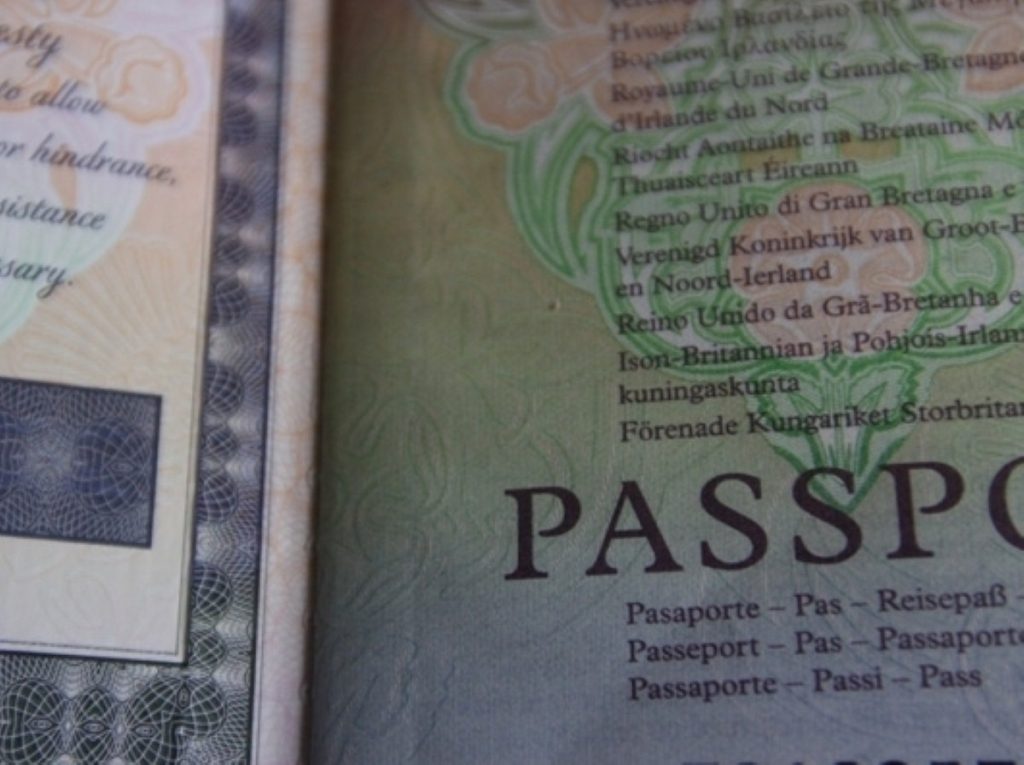Official advice: Cut worker immigration by 25%
The number of skilled workers coming to the UK ought to be cut by between 13% and 25%, the government’s immigration advisers have recommended.
The Migration Advisory Committee (MAC) put a figure on how many skilled workers the country needs for the next financial year and found the number should be somewhere between 37,400 and 43,700.
The limit would be placed on tier one visas – people who can prove they have the necessary skills to contribute to the British economy – and tier two – people who have already received a job offer in the UK.


Labour has called the proposals “the worst of all worlds”.
David Cameron has said he intends to bring immigration down to the “tens of thousands” but the recommended level of cuts have raised concerns in the business community that such a cap will have a negative impact on the economy.
The immigration minister Damian Green said: “Bringing down net migration to sustainable levels will not be easy. We will not be able to achieve it by focusing on just one area of the system or on one route into Britain.
“This is just one of the ways we intend to reduce the level of net migration back down to the tens of thousands each year.
“We can reduce net migration without damaging our economy,” he insisted.
But the report stated that that even if the 25% figure was put in place, the vast majority of cuts in immigration would have to come from the family and student routes.
Professor David Metcalf, chair of the committee warned: “It is not possible to reduce net migration to the tens of thousands by limiting work-related migration alone.
“The committee assumes that work-related migration takes 20% of the total cut – its fair share – which implies that family and student migration must take the other 80%.”
He also sounded a note of caution, acknowledging that “it would be remiss not to point out that there is widespread concern among employers regarding the impact that limits on migration could have”.
Outlining the impacts of current economic migration, he added: “Non-EU Tier 1 and Tier 2 migrants, at present levels: have a small positive impact on GDP per head; do not increase inflationary pressure; contribute positively to net public finances; play a small but important part in the provision of education, health and social services; increase pressure in the housing market a little; and probably have little effect on crime and cohesion.”
Until now the government has been vague on the number it would set as a cap. The coalition has simply repeated the Conservative election promise to bring down net migration down from “hundreds of thousands to tens of thousands”.
An interim cap of 24,100 non-EU migrants allowed into the UK until next April was introduced by the home secretary in September, reducing the previous level by five per cent.
The details of the permanent cap have remained a mystery until now.
The policy is a cause for serious concern among the business community over whether they will be able to recruit the best talent from overseas.
Some economists are equally concerned about the wider implications of the move, with many arguing that any action to reduce the number of foreign students would hit university funding and deprive the UK of dynamic young workers who tend to stay in the UK for a few years after graduating.
The Ippr thinktank claimed that because the government has no control over people coming from the EU, it would – in order to bring net immigration down to 80,000 – have to cut total non-EU immigration by 63%.
Ippr associate director Sarah Mulley said the government could no longer claim that the cap would not harm UK business.
She added: “The government now faces an unpalatable choice between introducing a policy which it knows will be damaging to the economy and public services, or failing to fulfil a key promise to the electorate.”
Lib Dem business secretary Vince Cable is also a known opponent of the cap. He has argued an arbitrary limit could have harmful consequences.
Further criticism came from the Commons’ public accounts select committee, which has dismissed the plans as unworkable, because any cap imposed by the government will only affect those migrants from outside the European Union.
The government responded to the criticism by exempting intra-company transfers from the effects of the cap, in order to ease business concerns.
The committee also suggested possible concessions could be made, proposing auctions for skilled migrants.
It continued: “If a worker was so economically critical that a sponsored employer was prepared to pay whatever amount was required to bring that person into the UK, there would be allowance in the system for such cases.”
Immigration was the subject of bitter debate between the current coalition partners during the election campaign.
This afternoon, Gerry Sutcliffe, a Labour shadow Home Office minister responded to the committee’s recommendations, saying: “The government’s immigration cap is the worst of all worlds. It does very little to control immigration but is bad for business and scientific research at this critical time for our economy.
“The government needs to go back to the drawing board and rethink the whole policy.”
The government will issue its response to the report shortly.









